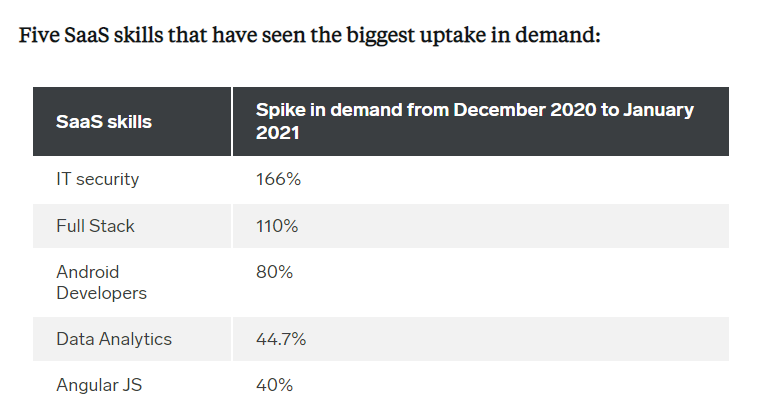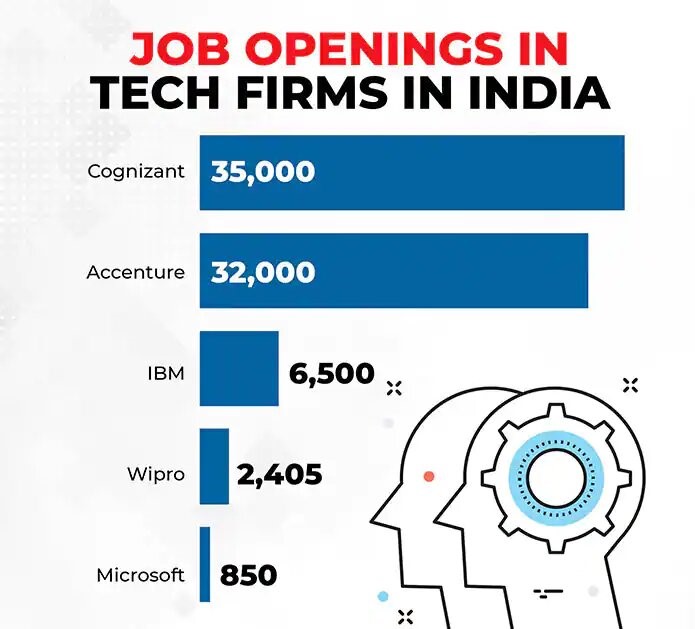Indian IT talent getting packages of INR 60 LPA from MNCs - Is India's image changing as a source of cheap human resource?

Employers scouting for tech-savvy talents in India are facing something that they have not experienced before – skyrocketing salaries. This is particularly true for software businesses who are finding it difficult to compete with the new demands from talent.
At a time when most workers are grappling with salary cuts and job losses in India, those in the software industry are bearing fruits of pandemic. Since the pandemic accelerated the need for all businesses to go digital, the demand for skilled IT talent spiked, leading to an unprecedented salary hike. In some cases, companies have offered as much as 50-100% hike bringing the entire package near to INR 60 LPA.
However, experts suggest that the sudden bump in payout may not prove to beneficial for the indigenous market as this makes India less attractive for global players.
Reasons for unprecedented salary sikes
Siddharth Sangwan, Director and Head of talent strategy at Lightspeed Venture Partners is of the view that the reason for high salaries in the IT sector is because of the trail winds brought by the COVID-19 pandemic. The pandemic has not only led to a huge leverage using technology but also nudged leading firms to increase their teams by onboarding high-quality engineers.
 Image Credits: Quess IT Staffing, 2021
Image Credits: Quess IT Staffing, 2021
Prior to the pandemic, these SaaS (Software-as-a-Service) skills were considered to be niche skills, with its own specific requirements, customers, and products. However, when the world was swept by the new wave of 'digital transformation' owing to the lockdown that forced businesses to stop operating physically, these skills are now deemed to be mainstream.
Vijay Sivaram, the CEO of Quess IT Staffing opined that organisations are looking to hire talent with bundled skill sets, rather than just one skill, driving up the salary expectations and offers in the market.
Welcome the new players!
Though traditional IT companies have not ceased hiring for the same SaaS skills, startups and small businesses have entered the field as well. Praval Singh, the Vice-President of Marketing at Zoho Corp said that out of the 1000 SaaS companies in India, more than 150 have an annual recurring revenue of more than $1 million. He exclaimed that because these startups/companies have a healthy customer retention rate, they pay better and bigger salaries to their employees and thus, are a hotbed for engineering talent.
Multinationals face a challenge
Vikram Ahuja, co-founder of Talent500 told ET that companies are offering as much as 50%-100% hike to top talent. In his view, this will ultimately drive away the organizations which are drawn here because of a much cheaper workforce or business talent.
Vinu Nair, managing partner of Antal India, which works with global companies on their India recruitment plans, is of the opinion that this sudden increase in pay-outs is making offshoring the Indian business model and large global in-house centers in India less competitive.
From IT, Tech, manufacturing, etc. many industries have relied on India for its low-cost labour. However, many companies are now finding that the same labour cost is increasing faster than expected, compelling them to turn to other lower-cost sourcing markets to find the best talent. This new trend is becoming increasingly noticeable in the business landscape/market, especially in the IT space.
India getting re-evaluated!
Since the early 2000s, a skill shortage has been experienced across the globe that has led to a difference in salaries across countries. A growing number of positions have been outsourced to economies like India and China because of their leadership talent, significantly lower cost of living, and because of their increasing rates of market penetration.
Indian companies have long remained a magnet for foreign multinational corporation recruiters and other business unit leaders seeking cheap labour in the underdeveloped countries. However, as their wages have begun to increase, MNCs and global companies are now looking to other nations that offer more competitive salary packages but don't lack adequate technology and workforce training.
Poland, Vietnam, Philippines and Ukraine may not be India's equals when it comes to developing advanced IT infrastructure modules required by most corporations but they are quickly catching its stride in piquing client interest through pricing, flexible strategy, and growth strategy.
 Source: Companies' Career Pages as on July 12, 2021|Image Credits: Money Control, 2021
Source: Companies' Career Pages as on July 12, 2021|Image Credits: Money Control, 2021
For more such interesting articles, read:
- IIM CAT 2021: Eligibility criteria changed; minimum percentage removed!
- HUL to conduct interviews for their coveted summer internship programme ULIP 2022 via HUL L.I.M.E. | Apply now!
- GATE 2022: Registration From Aug 30, Download GATE Syllabus PDF
- MBA grad turns his father's dosa eatery into an iconic brand
- The basics of GMAT quant preparation that you must know!
Login to continue reading
And access exclusive content, personalized recommendations, and career-boosting opportunities.
















Comments
Add comment